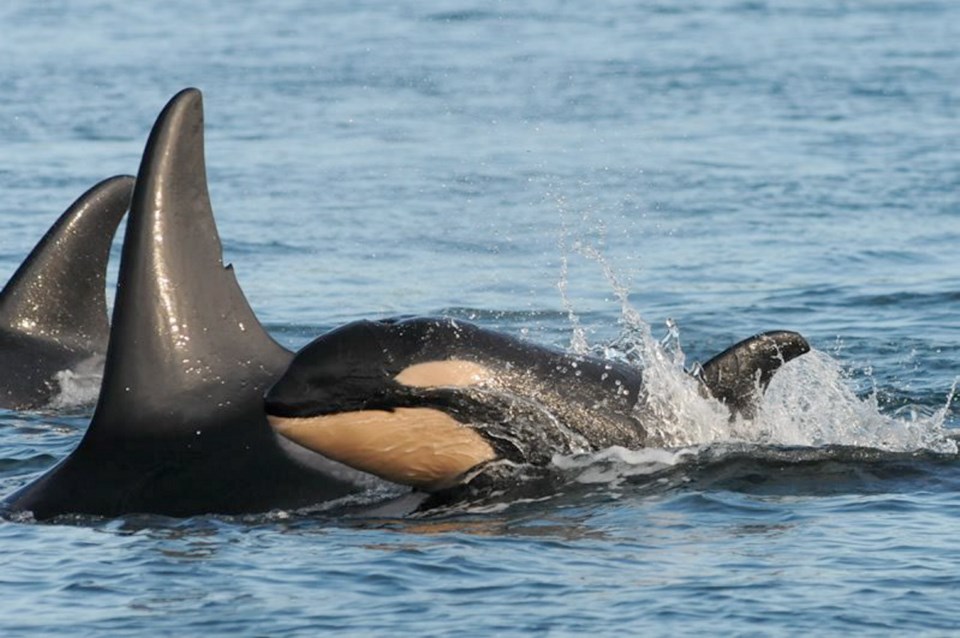A necropsy is being performed on a dead orca calf spotted floating in waters off Otter Point.
DNA tests will reveal whether the calf was a member of the endangered southern resident group, said Paul Cottrell, marine mammal co-ordinator for the Department of Fisheries and Oceans.
There were nine calves born to the group, which has 84 members, between December 2014 and January 2016. Young orcas have a mortality rate of about 50 per cent before reaching adulthood.
A local resident noticed the carcass floating off Otter Point, west of Sooke, and sent photographs to the B.C. Marine Mammal Response Network.
It was confirmed as a killer whale calf on Wednesday, Cottrell said. A team went out Thursday to look for the carcass, but poor weather hampered efforts, he said.
Searchers were back on the water Friday morning in a rigid-hulled inflatable boat, while Cottrell scoured the shore in case the body had washed up.
The carcass was discovered floating in water about 500 metres off Sooke Point.
In the boat were Jared Towers, of the Center for Whale Research in Washington, and Mark Malleson, who does work for Fisheries. They towed the whale to a boat launch at the nearby Prestige Oceanfront Resort on West Coast Road.
The body, weighing about 200 kilograms, was put into a special bag and hoisted into the back of Cottrell’s truck. “It was quite a job,” he said.
Cottrell headed for the ferry to take the body to B.C.’s Animal Health laboratory in Abbotsford for the necropsy.
“It is fairly decomposed, but, hopefully, we will be able to get some information from the necropsy and maybe even something that will give us some information on what may have happened to this animal.”
It appears the calf is a female. Most of its skin is gone, making identification difficult; killer whales have individual markings.
Deborah Giles, of the Center for Whale Research, was not at the scene but has received information about the calf. It looks as though there were fetal folds on the animal, which means it was born fairly recently, she said.
“Those pop out pretty quickly after birth,” she said.
On Christmas Eve, a calf was recovered by Cottrell on the west coast of Vancouver Island. The carcass had washed up on the shore. DNA testing found that it had been a member of an Alaskan transient orca population.



